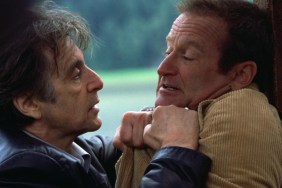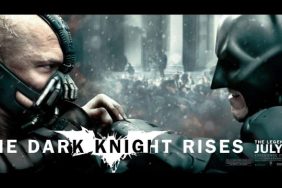
Arriving in theaters in Los Angeles on August 17, On Demand on August 22 and elsewhere throughout the month and into September and October comes the new documentary Side by Side from director Chris Kenneally as he journeys through the past and the future of filmmaking with interviews with several prolific filmmakers with Keanu Reeves serving as the film’s guide.
The major focus is on digital film taking over from the decades old standard and exploring the impact it has made. The interviews include the likes of James Cameron, David Fincher, David Lynch, Christopher Nolan, Martin Scorsese, George Lucas, Steven Soderbergh and many more and today several outtakes from those interviews have been released online including brief bits with Lana and Andy Wachowski (The Matrix, Cloud Atlas), Martin Scorsese and his Taxi Driver cinematographer Michael Chapman, Wally Pfister (cinematographer on The Dark Knight Rises and Inception) and Steven Soderbergh. Already in just these brief snippets I’m ready to watch this film, which I will hopefully be able to fit in and watch this afternoon, and these are just the outtakes.
I was most intrigued by Soderbergh’s comment saying:
“It seems hypocritical, if you’re a creative person, to be saying ‘no’ to anything. Especially anything new. It’s the definition of your job to be exploring; to be evolving; to create new knowledge. That’s your job as an artist. I’m always surprised when people say ‘no’ or are taking a ‘hand on hip’ attitude about something new, whether it’s a piece of technology or a piece of art that’s just doing something different. I would never want to be perceived that way, as someone who’s static, that’s unnatural. Stasis is actually an unnatural form of being, because nothing in this universe is static. Everything is moving forward. It can’t help it. Any idealogy that says, ‘We are at the end of discovery about ‘this thing’.’ I just go, ‘Well there’s actually no evidence to suggest that’s true.’ We are always, in essence, at the beginning of infinity. No matter what we’re talking about. There’s always another iteration, there always will be and that’s the fun of it.”
It’s easy to look at this and consider comments from Christopher Nolan and Quentin Tarantino, both of whom profess their love of shooting on film exclusively, which leads to Pfister’s comment saying, “The complexities of Chris Nolan’s movies are in the story.”
You also have the more dire comments such as when Chapman says, “Movies were the great art form of the 20th Century, but the 20th Century is over… Opera died because it became technologically obsolete.”
Have movies become technologically obsolete or has film? Is there a chance the commercialism tied with the speed and ease of filmmaking nowadays on digital will in some ways lessen and or “kill” the art form we recognize as cinema? Does cheaper and easier necessarily mean better?
Soderbergh’s statement above is a bit strange to me as I don’t think a filmmaker’s “job” is as black-and-white as he claims it to be. I don’t believe filmmaking is entirely in the technology and I think digital filmmaking can be easily dismissed with a “hand on hip” attitude, especially if your focus is in telling stories and creating an emotional connection with the audience. I don’t think you need a digital camera to do that and if it’s a filmmaker’s belief that effect can be greater achieved with film over digital does it really matter?
Check out the video outtakes below and you can watch the trailer at the bottom of this post.









